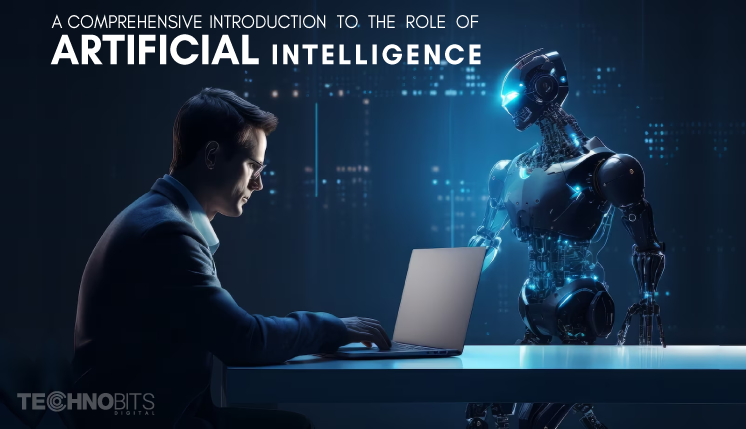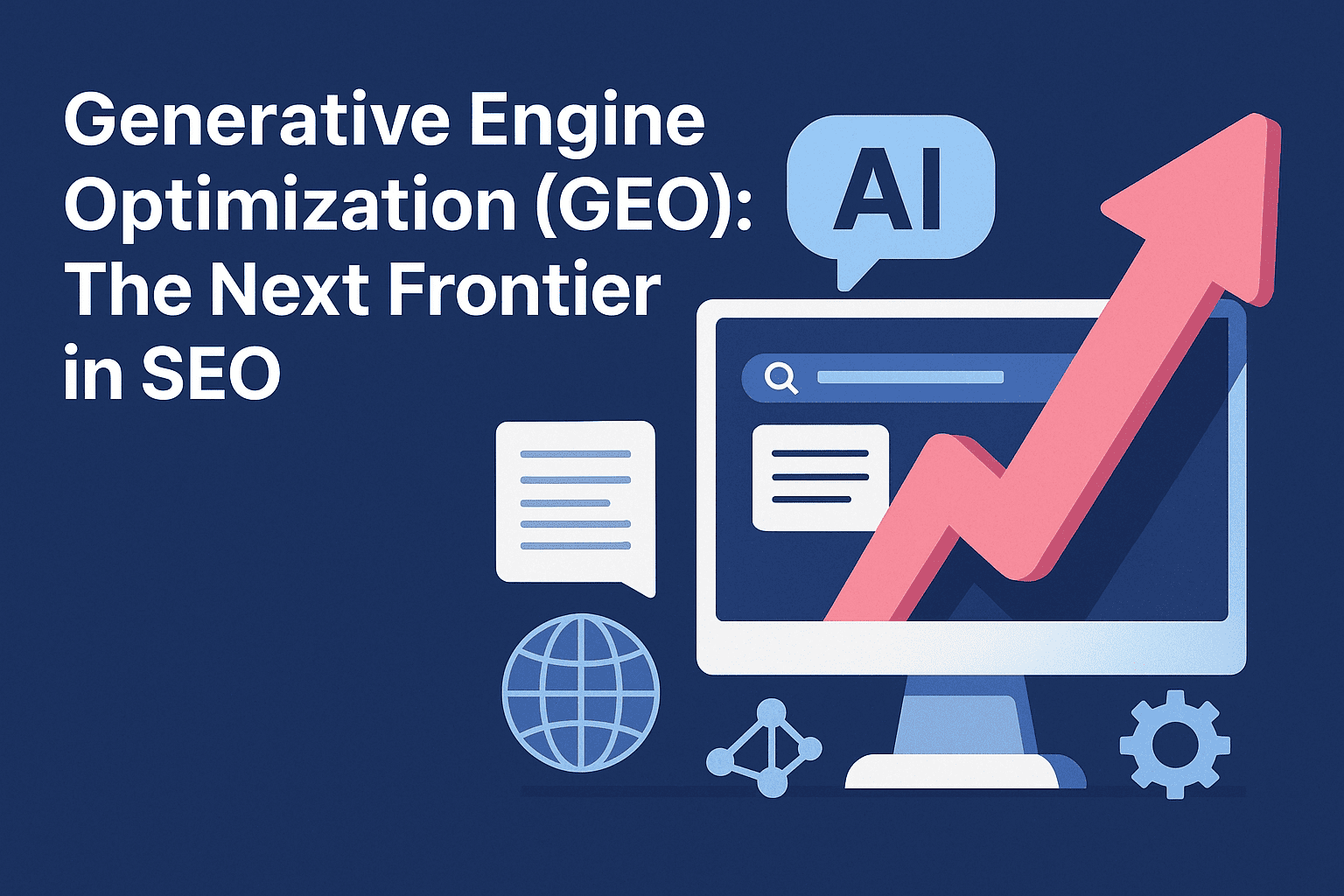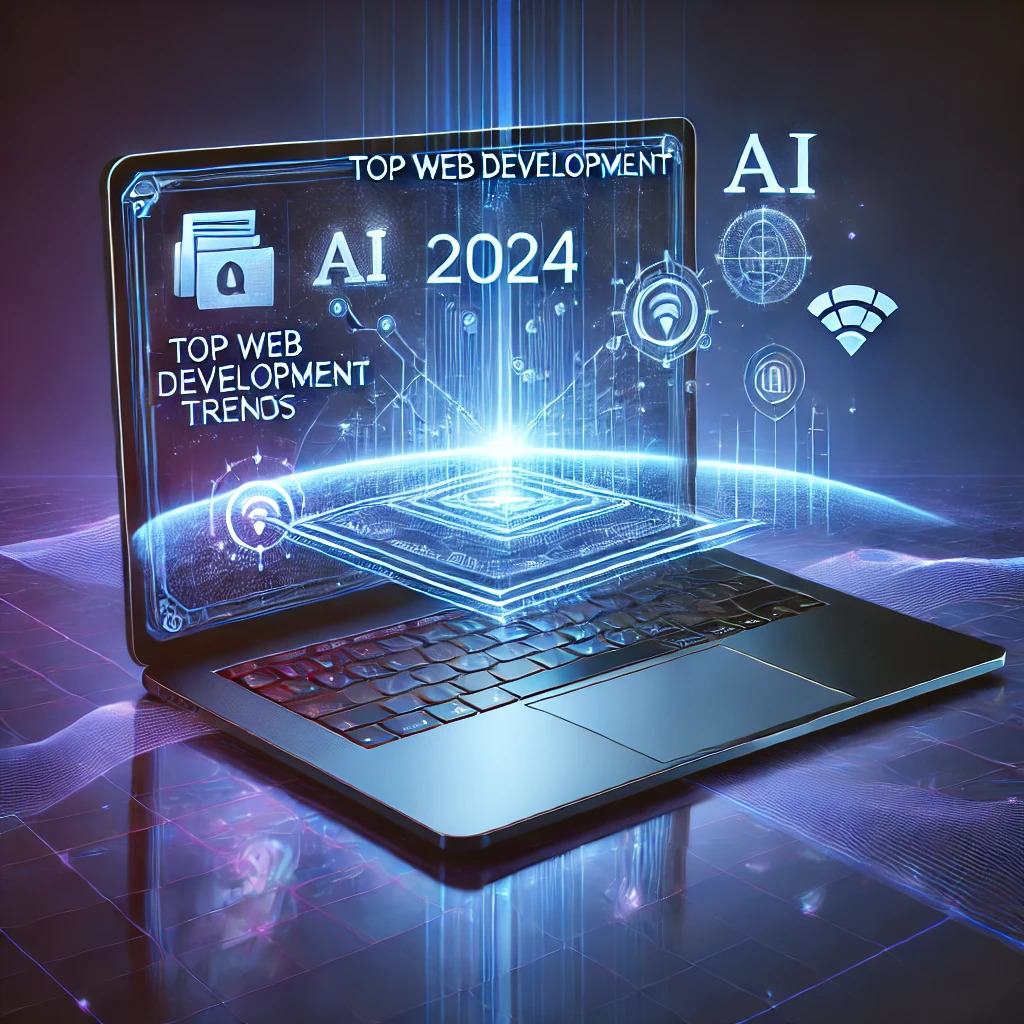Blog Detail
Revolutionizing IT Services: A Comprehensive Introduction to the Role of Artificial Intelligence
Artificial Intelligence
Jan 23 2024

In the ever-evolving landscape of information technology, the integration of artificial intelligence (AI) has emerged as a transformative force, reshaping the way IT services are conceptualized, implemented, and optimized. This blog aims to provide a comprehensive introduction to the profound impact of AI in the realm of IT services, exploring the various facets that contribute to its revolutionary influence.
Understanding Artificial Intelligence in IT Services
Artificial intelligence involves creating computer systems that perform human-like tasks. In the context of IT services, AI has become a game-changer, ushering in a new era of efficiency, innovation, and enhanced capabilities. The fusion of AI with IT services empowers organizations to tackle complex challenges, automate routine tasks, and unlock unprecedented insights from vast datasets.
The Core Components of AI in IT Services
To comprehend the role of AI in IT services, it is essential to dissect its core components. Machine learning, a subset of AI, enables "Systems that are capable of learning and improving from experience without requiring explicit programming." Natural language processing (NLP) enables machines to understand and interpret human language, facilitating seamless communication between users and systems. Additionally, computer vision empowers machines to interpret and make decisions based on visual data, expanding the possibilities within IT services.
Practical Applications of AI in IT Services
The practical applications of AI in IT services are multifaceted and extend across various domains. Automation stands out as a prominent application, streamlining repetitive tasks and allowing IT professionals to focus on more complex, strategic initiatives. Predictive analytics, another powerful facet of AI, enables organizations to anticipate issues before they arise, optimizing performance and minimizing downtime.
Artificial Intelligence (AI) in cybersecurity applications has a significant role. pivotal role in fortifying digital defenses. Advanced threat detection algorithms powered by machine learning can identify and neutralize potential security threats in real-time, offering a proactive approach to cybersecurity that goes beyond traditional methods.
Real-World Examples
To illustrate the impact of AI on IT services, examining real-world examples becomes imperative. Companies like IBM, Microsoft, and Google have incorporated AI into their cloud services, enhancing IT infrastructures' scalability, security, and overall performance. Chatbots, powered by AI-driven natural language processing, have become integral components of customer support services, providing instant and personalized assistance to users.
Moreover, AI has found applications in IT service management (ITSM) tools, where it facilitates automated ticketing, problem resolution, and asset management. These real-world examples underscore the tangible benefits that AI brings to the efficiency and effectiveness of IT services.
Impact on Cybersecurity
Cybersecurity is among the most critical areas where AI has made substantial inroads in IT services. Conventional cybersecurity defenses frequently fall behind the rapidly evolving tactics of cyber threats. AI, however, introduces a dynamic and adaptive layer of defence.
AI-powered security solutions use machine learning techniques to analyze patterns, detect anomalies, and identify potential security breaches. This proactive strategy enables firms to move quickly. To emerging threats, minimizing the impact of cyberattacks and ensuring the integrity of sensitive data.
Enhancing User Experience
Beyond the realms of automation and security, AI is essential to improving user experiences.within IT services. Chatbots, powered by AI, have become integral components of customer support, providing instant responses and personalized interactions. Through machine learning algorithms, these chatbots continuously improve their capacity to comprehend user requests and provide accurate solutions.
Personalization, another aspect of AI-driven user experience enhancement, manifests in recommendation engines that analyze user behavior to offer tailored suggestions. This not only improves user satisfaction but also contributes to the overall efficiency of IT services by anticipating user needs and preference
Challenges and Ethical Considerations
While the integration of AI in IT services brings about remarkable advancements, it is not without its challenges and ethical considerations. Bias in AI algorithms, for instance, can perpetuate and exacerbate existing societal inequalities. Ethical concerns regarding data privacy and security also arise, necessitating careful consideration and proactive measures to mitigate potential risks.
To overcome these obstacles, a comprehensive strategy that includes transparent AI development practices, rigorous testing, and ongoing monitoring for potential biases. It is necessary to create ethical frameworks and rules in order toensure the responsible and fair deployment of AI in IT services.
Future Trends in AI for IT Services
The journey of AI in IT services is far from reaching its pinnacle. As technology advances, a number of fascinating phenomena are influencing the future landscape. It is anticipated that natural language processing will advance even more. enabling more seamless and context-aware interactions between users and AI systems.
Advancements in computer vision will expand the scope of AI applications in IT services, enabling the analysis of visual data for enhanced decision-making. Furthermore, the integration of AI with edge computing is poised to revolutionize the speed and efficiency of data processing, particularly in scenarios where real-time decision-making is crucial.
Conclusion
Finally, incorporating artificial intelligence into IT services represents a paradigm shift that transcends traditional boundaries. From automation and cybersecurity to user experience enhancement, the applications of AI are vast and varied. While challenges and ethical considerations demand careful attention, the potential benefits far outweigh the risks.
As businesses continue to use AI in their IT services, the landscape of information technology will undoubtedly undergo further transformation. The future promises a dynamic synergy between human expertise and artificial intelligence, ushering in an era of unprecedented efficiency, innovation, and progress in the realm of IT services
Embark on a transformative journey as the AI revolution reshapes the landscape of IT services. Delve into the cutting-edge advancements that are "Propelling businesses towards a new era of efficiency and innovation. "Discover how artificial intelligence is revolutionizing IT, optimizing processes, and driving unprecedented growth in the tech industry.
TAGS
India +91 97265 89144, Dubai +971 544149632.
We truly care about our users and our product.






